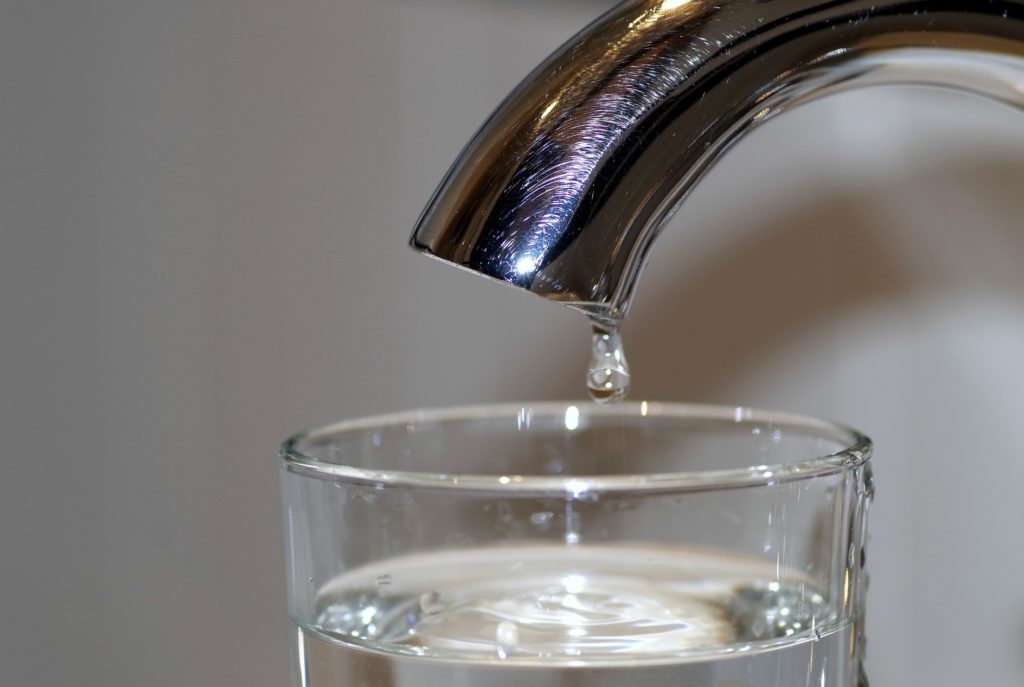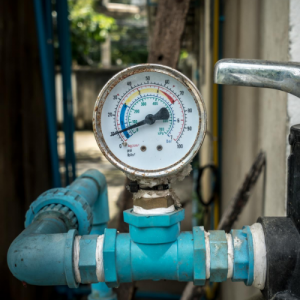Easy-to-Follow Methods for Resolving Low Water Pressure in Your Home
Easy-to-Follow Methods for Resolving Low Water Pressure in Your Home
Blog Article
The content directly below involving 9 Reasons for Low Water Pressure in Your House is quite enjoyable. Try it and make your own ideas.

Low water stress in your house can be a frustrating issue, affecting everything from bathing to washing dishes. If you're experiencing weak water flow, there are numerous possible causes and solutions to explore. In this overview, we'll review typical factors for low tide stress and practical actions to deal with the issue properly.
Intro to Low Water Stress
Low water stress happens when the flow of water from your faucets, showers, and various other fixtures is weaker than common. This can make daily tasks extra challenging and much less efficient. Recognizing the root causes of low tide pressure is crucial to finding the right option.
Common Causes of Low Water Pressure
Faulty Stress Regulatory Authorities
Pressure regulators are responsible for maintaining constant water stress in your house. If they malfunction, it can lead to low water stress or unequal flow throughout your home.
Community Water System Issues
Sometimes, the trouble exists outside your home. Community supply of water issues, such as main line leaks or maintenance work, can momentarily lower water stress in your location.
Pipeline Obstructions
Over time, pipelines can come to be obstructed with mineral deposits, sediment, or particles, limiting the flow of water. This is a common concern in older homes with galvanized steel pipes.
Rust
Deterioration within pipelines can cause leaks and reduced water stress. Corrosion accumulation can constrict water circulation, particularly in maturing plumbing systems.
Exactly How to Diagnose Low Tide Pressure
Checking Pipes
Evaluate visible pipes for indications of leakages, rust, or blockages. Focus on any unusual audios, such as banging or rattling pipelines, which could indicate problems within the plumbing system.
Consulting with a Plumber
If you're unable to identify the reason for low tide stress, think about employing an expert plumber to perform a detailed evaluation. They can determine underlying problems and recommend ideal options.
Checking Taps and Fixtures
Begin by examining the water pressure at different taps and components throughout your home. If the issue is isolated to specific areas, it may show local troubles.
DIY Solutions to Repair Low Water Pressure
Flushing Water Heater
Sediment accumulation in the hot water heater can restrict flow and minimize effectiveness. Flushing the container regularly assists remove debris and keep ideal efficiency.
Checking Stress Regulatory Authority
Ensure that the stress regulatory authority is operating properly. Adjusting or changing the regulator can assist recover appropriate water pressure throughout your home.
Cleaning Aerators and Showerheads
Natural resources can build up in aerators and showerheads, reducing water circulation. Eliminate and clean these parts consistently to improve water pressure.
Clearing Up Clogs in Water Lines
For minor blockages, try utilizing a plumbing serpent or chemical drainpipe cleaner to clear obstructions in pipelines. Beware when utilizing chemicals and follow safety and security standards.
When to Call a Professional Plumber
If DIY efforts fail to solve the concern or if you suspect substantial plumbing troubles, it's finest to seek aid from a certified plumber. They have the proficiency and tools to attend to complicated issues safely and successfully.
Preventive Measures to Keep Water Pressure
Installing a Pressure Booster
Take into consideration installing a pressure booster pump to boost water stress in areas with consistently low circulation. This can be specifically useful for multi-story homes or residential or commercial properties with high-demand components.
Surveillance Water Use
Be mindful of water usage behaviors and stay clear of ill-using the plumbing system. Simple modifications, such as incredible showers and laundry loads, can aid maintain adequate water pressure.
Regular Maintenance
Schedule regular maintenance for your plumbing system to stop problems such as deterioration, leaks, and obstructions. Dealing with small problems early can aid prevent even more substantial fixings in the future.
Final thought
Handling low tide pressure can be frustrating, yet identifying the underlying causes and carrying out ideal services can restore optimum flow throughout your home. Whether it's cleansing aerators, examining pipes, or talking to a plumber, taking positive steps can ensure a steady supply of water for your day-to-day needs.
HOW TO FIX LOW WATER PRESSURE IN YOUR HOUSE (EXPERT GUIDE)
The morning shower lacking any real pressure? Bathtub taking hours to fill? Or maybe you’re dissatisfied with the inadequate performance from your combi boiler?
Then you, like millions of others across the UK, might be experiencing low water pressure.
Fortunately, the good news is that you don’t have to continue living this way. The cause of low water pressure in the home is often quite simple, and you may not even require a plumber to fix the problem.
What causes low water pressure in the house?
If you are experiencing issues with water pressure throughout your home, then you may have one of the problems outlined below.
Most of these problems can be fixed quite easily, but for others, you may need to contact a plumber.
Obstructed Shutoff Valve
If you’ve just bought a new home or recently had building work conducted on your property, there is a chance that your water valves were not fully opened.
If the water valve is partially closed, then you may be restricting the amount of water entering your home. To fix this, simply ensure the valve is fully open.
If the valve appears fully open but you are still encountering reduced water pressure, then the valve may be broken. If this is the case, do not under any circumstances try to fix it without proper training.
Often found under your kitchen sink, a water valve will usually look like a bright yellow handle.
Again, if you believe the water valve is broken, contact a plumber immediately.
Leaks in Your Water Pipes
Leaks are the worst-case scenario when it comes to low water pressure.
If the water pipes are damaged, then this will cause low water pressure, as not all the water will make it to your taps.
After you’ve checked to see if the valve is fully open, you can conduct a leak check of your home. Now, this may seem scary, but it is actually quite simple.
Clogged Water Pipes
Clogged water pipes are one of the most common causes of low water pressure.
These clogs usually build-up when your home is supplied water via iron pipes. Iron is particularly vulnerable to rusting which can then break off and cause an obstruction within your system. You also face the problem of things like dirt, gravel or sand entering creating mineral deposits which further block water flowing from the mains water supply.
Unfortunately, if you suspect that clogged pipes may be restricting your water supply, then you will need to contact a plumber.
In this situation, you will either need to have your pipes removed and cleaned or in more severe cases, you could require a new set of water pipes.
Designer Taps
Designer taps look fantastic, but are they built to be efficient in your plumbing system? Modern taps are built for modern homes and they often have lower flow rates that are specifically designed for use within high-pressure systems.
Install a Water Pressure Booster Pump
If the issue is simply that the mains water pressure supply is too low, the simplest fix is to invest in a booster pump. Found in homes of all shapes and sizes, booster pumps are a relatively cheap option to add extra pressure to your home.
Designed to increase water pressure by passing water into the pump from your mains supply and then ejecting it into your home water system at a higher pressure, a booster pump is a truly simple and effective solution to increasing water pressure.
https://www.anchorpumps.com/blog/the-plumbers-guide-to-fixing-low-water-pressure/

I was guided to that write-up about 9 Reasons for Low Water Pressure in Your House from a friend on our other web address. Are you aware of another person who is fascinated by the topic? Take a moment to share it. Thanks so much for going through it.
Book Report this page